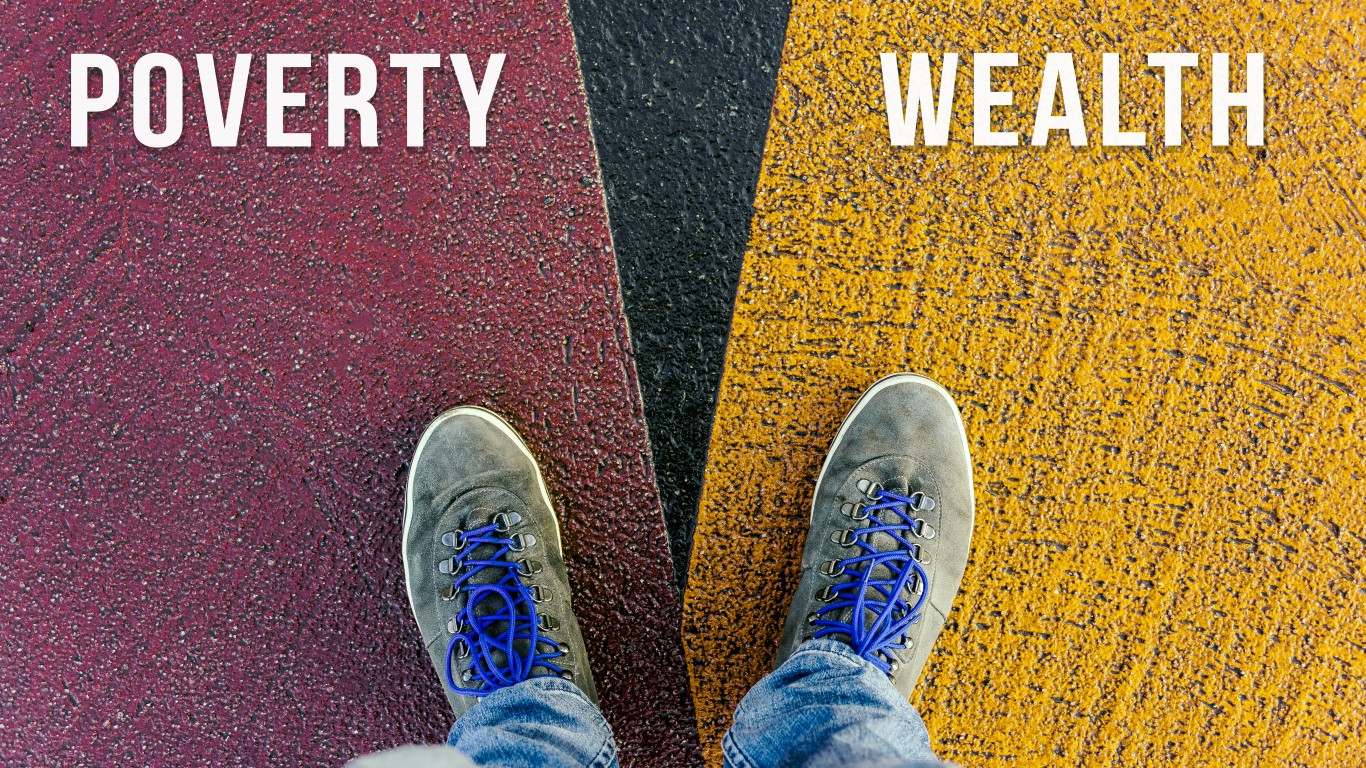
It is no secret that there is a wealth gap in America. Many nations have these wealth gaps among different races and ethnicities, but they are more easily tracked in the most developed economy in the world. Before considering the impact of the 2020 recession, there was some good news and some bad news in the wealth gap and disparities among different races in America.
The Federal Reserve has released its 2019 Survey of Consumer Finances. While the broad report is vast and covers many topics, the Fed also broke down how those wealth disparities look by race and ethnicity. Since the most recent similar report in 2016, the Fed indicated that the typical white family has about eight times the wealth of the typical Black family and about five times the wealth of the typical Hispanic family.
The Fed indicated that median wealth rose for all race and ethnicity groups between 2016 and 2019. During that time, the growth rates of median wealth rose by significantly higher rates for Black and Hispanic families. The media growth in wealth was 33% for Black families and 65% for Hispanic families. The median growth in wealth of white families rose by 3% in that time. The broad “other” category for families saw their median wealth wise by 8%.
While this much faster growth in median wealth for black and Hispanic families was seen, the Fed also pointed out that this resulted in only modest wealth gap changes between white families and that of Black and Hispanic families. The white-Black gap in median wealth was $163,700 in 2016, and it was $164,100 in 2019. The white-Hispanic gap fell from $160,000 in 2016 to $152,100 in 2019.
In the 2019 Federal Reserve survey, white families had median wealth of $188,200 and mean family wealth of $983,400. Black families’ median wealth was $24,100 and their mean wealth was $142,500. The median wealth for Hispanic families was $36,100 and their mean wealth was $165,500.
As for how the current recession from COVID-19 compares to the Great Recession more than a decade ago, the data has not yet been seen, other than what has been shown with significantly higher rates of unemployment in communities of color. In the U.S. Department of Labor’s August employment situation report, the race and ethnicity breakdown of unemployment rates was as follows:
- White (7.3%)
- Black (13.0%)
- Hispanics (10.5%)
- Asians, which would also be counted in the “other” (10.7%)
The Federal Reserve data did point out that median wealth fell about 30% for all groups during the Great Recession, but it went on to show that media wealth in Black and Hispanic families continued to fall an additional 20% from 2010 to 2013.
Not until after 2013 did the median wealth rose for all groups. Faster growth was also seen for Black, Hispanic and other families in that same time frame.
Despite improvements, the Federal Reserve has warned that typical white and typical Black families have yet to recover their pre-Great Recession wealth levels. The Hispanic family wealth did manage to rise. The Fed’s survey said this:
Over the entire 2007-2019 period, wealth fell by 11 percent for the typical white family and by 7 percent for the typical black family. Only the typical Hispanic family has seen an increase in wealth relative to before the Great Recession, rising by about 39 percent, while the typical other family’s wealth is about unchanged since before the Great Recession.
There is obviously still a lot of work that has to be made in long-term wealth gap changes. Poverty rates were improving before the recession. Even while there was good news on that front from 2016 to 2019, the quickness and violence of this last recession came on so fast that the comparisons to the Great Recession might be even worse.
It’s Your Money, Your Future—Own It (sponsor)
Retirement can be daunting, but it doesn’t need to be.
Imagine having an expert in your corner to help you with your financial goals. Someone to help you determine if you’re ahead, behind, or right on track. With SmartAsset, that’s not just a dream—it’s reality. This free tool connects you with pre-screened financial advisors who work in your best interests. It’s quick, it’s easy, so take the leap today and start planning smarter!
Don’t waste another minute; get started right here and help your retirement dreams become a retirement reality.
Thank you for reading! Have some feedback for us?
Contact the 24/7 Wall St. editorial team.


